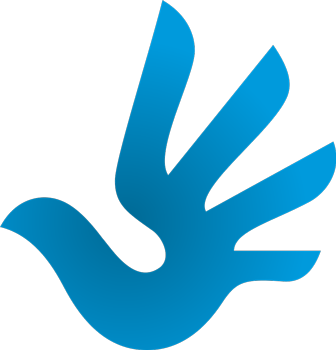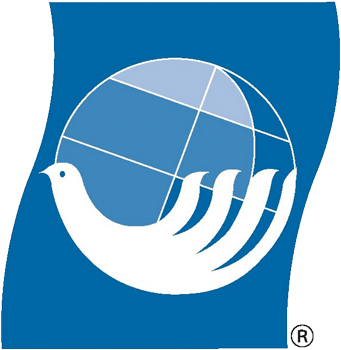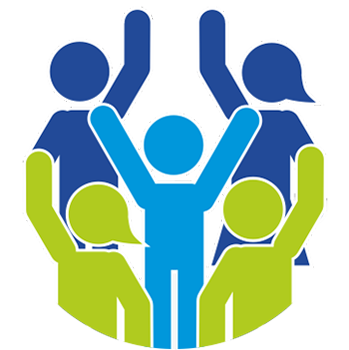Andrea Robles returns to MGG, now as part of the IDOS staff
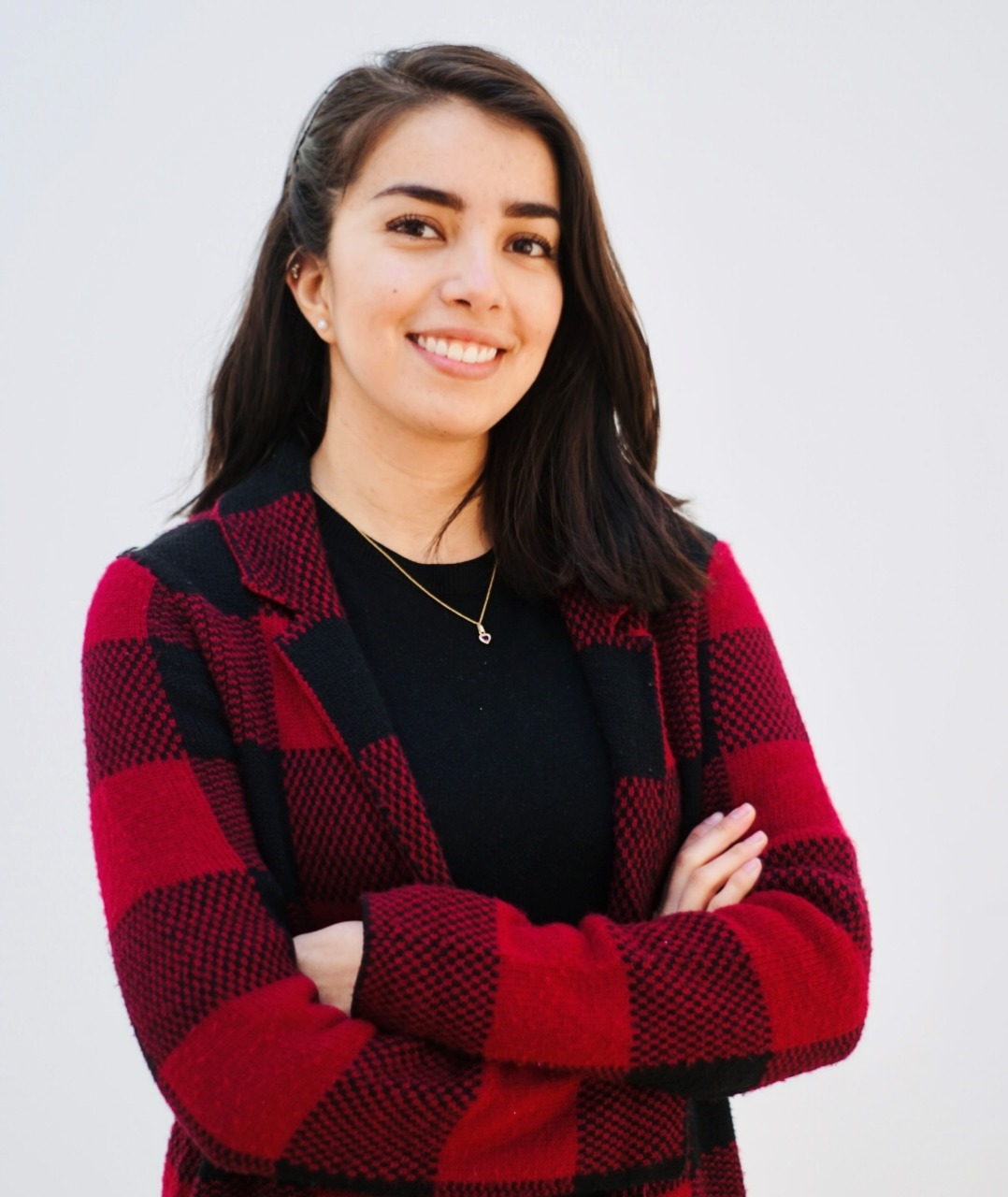
Three years later, we interviewed Andrea Robles to find out more about her participation in the MGG Network.
On a day like today, exactly three years ago, we interviewed Andrea Robles for the first time, who had just arrived in Bonn to participate in the MGG Academy 2019. On that occasion, she shared with us her intention to acquire new knowledge, unlearn negative work habits and leave behind limited perspectives, to be able to broaden her vision towards global challenges and in the analysis of solutions, develop leadership and communication skills, as well as participate in multicultural conversations and debates.
— Andrea, it gives me great pleasure to chat with you again and to know how your plans have progressed. The first thing I want to ask you is, did the MGG Academy meet your expectations?
—Yes, definitely. I think that the most difficult process was unlearning, but the Academy provides you with all the conditions to facilitate the process. I remember the phrase “we don't change mentalities; we adapt the context so that people reflect on their actions and have the opportunity to act differently” and that strategy works very well at the Academy. You feel in an environment where change is welcome, where mistakes are not criticized when you dare to try new things. The environment of trust that is built in the academy gives you the security to confront your personal and professional challenges, causing change to take place in a bearable way. You have the option to take the challenge or let it go, but in my case, the change was very profound.
Not all of my changes were apparent at first. However, there were people I trusted who pointed them out to me and others that I identified as a result of my experience at the Academy.
— Sounds like it was a challenging experience. And which were the experiences that most marked your participation?
—Without hesitation, the final project. I worked with a Non-Governmental Organization (NGO) that coordinates the "Training instead of deporting" project, which focused on working with refugees, mainly from Syria and Afghanistan, who have arrived in Germany and who need mentors or tutors to help them get through exams to become residents. In this work we apply the "Design Thinking" methodology, we explore with the organization and other actors, consulting them about solutions that we could bring to the problem. In this project, we work with people from Mexico, India and Indonesia, who had to learn to collaborate in an intercultural context. This included establishing agreements, moderating conflicts, being receptive to different ideas, listening carefully to the proposals of other colleagues, as well as experiencing that feedback and constructive criticism are positive in any project. Executing this project with the Design Thinking methodology made me acquire a lot of knowledge regarding different ways of building results and solutions to a social problem. That was a great moment in my participation.
Another element of the Academy that was very important in my development is the leadership module, which consisted of short trips outside the academic context, which allowed us to focus on our life stories, on acquiring "soft" skills and tools that would allow us to grow as people and that this be reflected in our professional environment. I want to highlight that these modules are planned in a very comprehensive way and are held in three moments: at the beginning, in the middle and at the end of the academy, facilitated by a consultant and a consultant, experts in leadership and management development.
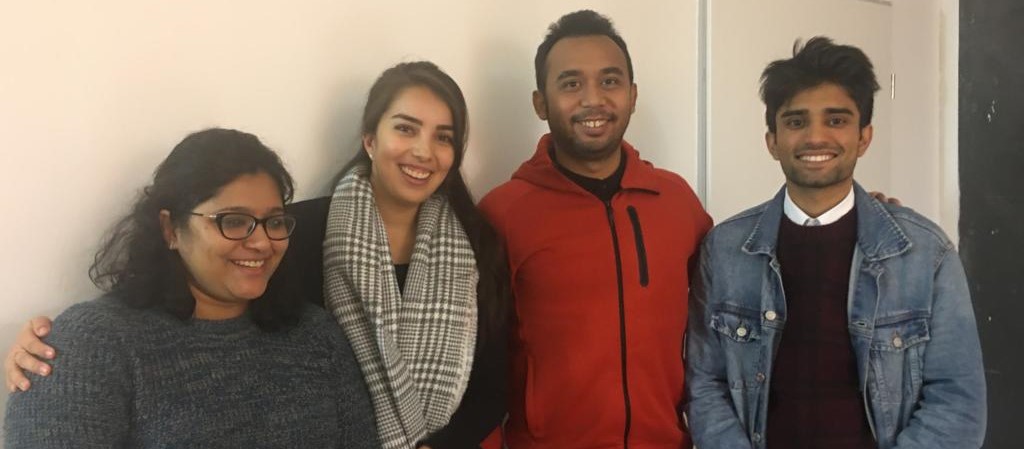
— Which were your greatest achievements?
— The evolution I had as a person and, therefore, as a professional. I remember that at first, I felt intimidated by many factors and I started very shy. I was nervous many times. However, in the final presentation of our project. I felt very confident presenting a project that I had worked hard to show the final product and feel open to listening and accepting feedback. In hindsight, the evolution I had from start to finish was very noticeable to me.
— All this sounds like it helped you to grow a lot as a person and as a professional, but what was it like to return to Mexico? Especially considering that the pandemic broke out upon your return.
— I had planned what my return to Mexico would be like, I decided to have a few sabbatical months and then go to study for my master's degree.
Unfortunately, the pandemic started and my plans fell apart, but my goal continued. Literally, every step I had planned fell apart, including spending quality time with my family and the scholarship I was applying for was canceled.
I had to deal with the frustration of my plans and the feeling of failure. But with the support of my friends and family, I built a new plan to study for my master's degree by 2021. However, I had to look for work to gain economic stability and return to Mexico City. I went through a stage of uncertainty and adaptation to a new normality, like many others, which did not allow me to immediately identify all my changes.
— I'm glad things worked out for you, although maybe your planes happened a little later than planned. This leads me to ask if you meet someone that you stopped seeing a while ago and you had to reintroduce yourself, what would you tell them? who is Andrea Robles now?
— Professionally, I am a candidate for a master's degree in public policy at the Willy Brandt School of Public Policy, in Erfurt, where I am specializing in digitization and cybersecurity issues. Just before starting my master's degree, I had a career jump, towards a position as a Project Manager in a cybersecurity start-up, and it was there that I witnessed the impact of technology on the development of society.
Personally, I know myself much more. I know my insecurities and also my strengths. I have realized that when I face different environments, for example, the Academy or my master's degree, I start by observing, listening and expanding my senses. Once I adapt, I listen and embrace what is different, and I live better with my insecurities.
Nowadays, I am a person who strives to generate more empathy towards others, I try to be more flexible with my thoughts, listen to both sides of the story, and see the grays and the nuances of the circumstances. I work on being more assertive because the MGG gave me techniques to give and receive feedback, as well as the practice of listening carefully. All these elements made me a more aware person and I have seen it reflected personally and professionally.
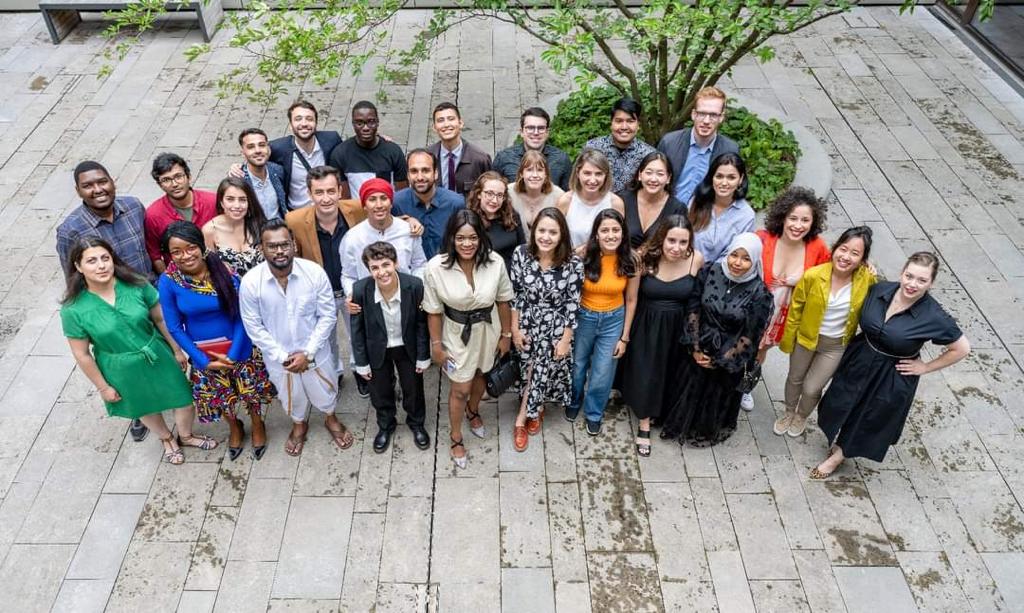
— Three years ago, you stated that the main global challenge was to reduce the gaps in social inequality and you argued that it was important to implement concrete actions, beyond filling libraries with academic publications. In addition to the final project of the MGG Academy, tell us what other initiatives have been achieved during these three years?
— I collaborate on a project of internationalization and digitization of education. In this project, I bring my perspective as a Mexican woman together with a teacher of Pakistani origin. We work on the design of a workshop on diversity to be offered to 60 students of 30 different nationalities who study and will study at my university. We seek that multiculturalism evolves into transculturality through palpable experiences.
Personally, my years of experience working in the federal government made me realize the lack of technical knowledge that is needed to contribute to the development of Mexico. For this reason, I am studying a master's degree in Public Policy where I have focused on strengthening what I have learned in the Academy and acquiring tangible tools that help me contribute more to the development of vulnerable communities using technology and the correct processing of data.
— In 2019, you had a pre-pandemic experience, and this year you have returned to the MGG Academy as part of the IDOS work team that will shape it. What changes have you noticed in the MGG?
—I still cannot give a complete answer because the new academy is about to start, but I also participated in some way in the intermediate process, with the workshop on gender that we taught remotely at the 2020 Academy.
I believe that the title of this transformation would be that digitization is here to stay and there is no turning back. It was a tool that saved the academy because instead of pausing it, it boosted it and made it possible for it to take place in a digital dimension. On the other hand, he also highlighted the importance of physical interaction and face-to-face coexistence among the participants. From my perspective, which could be a bit biased, I think that the word digitization has been more present in the MGG. I see the IDOS team as more receptive to technological tools that can facilitate online collaboration, and also have more knowledge and skills to use the tools during activities. For this reason, I think that there will be no turning back, but it is still necessary to analyze and experiment with how a balance between digital and face-to-face will be provided. A hybrid model could be created, but creating it is challenging. What I perceive is that after two digital academies, there is a great need to live this year in person. However, today there is wide reception and experience towards both worlds: face-to-face and digital. I was also involved in the opening of the MGG platform, and in this initiative, I believe that there is still more participation by the entire network to continue with this digital transformation.
Another aspect that I think is important to highlight of the Mexican participation, is that this year they grew in number. Now there are four representatives from Mexico when in previous issues they used to have only three. And there is the presence of non-common sectors, such as civil society and the private sector. Additionally, two members of the Mexico network will form part of the IDOS team to support various tasks. With these two aspects, the presence of Mexico in the network will have a greater impact and although it is very difficult to achieve a perfect balance, I consider it a very good sign that these types of opportunities exist for national branches of the networks.
I certainly believe that there are sectors that are more recurrent in their representation in the Academy, and some of these sectors can offer more to the concrete operation of the network. Which sectors do you think could still have a more active role in the MGG Network?
— It seems to me that in general, the non-governmental sphere is underrepresented. Personally, I would like to see other states of the Republic chosen to also diversify Mexico's perspective and make it more representative. Diversity is in the participating sectors, but also in the different realities that are experienced in our country. Currently, most of the members of the network in Mexico are concentrated in the most populated and developed city in the country.
— I agree with you, that the United Mexican States should not be reduced to Mexico City, although its name means "the navel of the world", it is not, and it is insufficient that some members of the network, like you or me, are native of other states to consider that with this we contribute to change the centralizing tendency of the country.
— Complementing this topic, what do you consider to be the priority sectors to achieve governance at the global level?
— The more diverse, the more global. It seems to me that knowing the trends of the sectors present in the Academy serves as an indicator. If there are underrepresented sectors, this tells us that the opportunities are being transferred to one sector, and that does not contribute to strengthening a global scheme, but rather to preserving hegemonies
— Imagine that there are readers interested in applying to one of the next batches, what advice would you give them to improve their application?
— Prepare your application in advance. It must be a well-structured and at the same time assertive application. I do not recommend it to be a three-day job, but the results of conscious analysis.
Give yourself the opportunity to explore what the Academy is, see the videos, and documents, learn about the experiences of those who have already participated, whether you can talk to someone or look for posts on social media, and read interviews like this one. Recently, IDOS has created more official content about the Academy, be curious and explore these new elements on the LinkedIn account, Twitter and the MGG microsite on IDOS website.
It is also very important that you involve your supervisors or hierarchical superiors of the institution that is going to support your application so that they are aware and have a work plan, or an orientation towards what benefits or what opportunities they seek both individually and collectively in the institution. Be flexible with your goals but have ideas that allow you to arrive with a maturity of thought, and goals for everything that the Academy offers. It is very important to play as a team when creating your application.
— What are the biggest personal and professional challenges you are facing right now?
— At this stage of my life, both aspects are very involved, both personal and professional, and that leads me to question what my next steps will be once I complete my master's degree. I still have one year left of the study program and my professional practices which, by the way, I will do at IDOS, as well as the completion of my thesis, which I would like to do as a project with an institution. Many things may change then.
I am interested in obtaining a job where I can offer my experience in development and sustainability and where I can venture into the use of digital tools to achieve the expected results.
— And obviously, it should also be a job that gives you back enough to recover all the resources you have invested in your preparation. Because studying abroad is not easy and many times it generates debts that must be paid at the end of the postgraduate course.
— Thank you very much, Andrea, for this interview. I hope that it also helps to make it clear that the MGG Academy is much more than a four-month stay in Germany. Also emphasize the importance that the applications are conscientiously prepared, both by the person who seeks to attend the Academy and by the institution that postulates it, with great clarity of what both can contribute to a growing and dynamic global network that seeks to contribute to the developing.
From Voluntad Organizada, we encourage you to apply if you represent non-traditional cooperants, such as local governments, non-governmental organizations, indigenous or Afro-descendant peoples, the private sector (mainly micro, small, and medium enterprises), or the academic sector; particularly if you operate outside of Mexico City implementing glocal initiatives, as long as your applicant organization can commit itself as a partner institution to contribute elements that enrich this global network.
To learn more about Global Governance, ![]() has the microsite mgg.vo.org.mx where you will find more information about the MGG Academy and the MGG Network. In addition, we highly recommend visiting the website of the German Institute for Development and Sustainability (IDOS).
has the microsite mgg.vo.org.mx where you will find more information about the MGG Academy and the MGG Network. In addition, we highly recommend visiting the website of the German Institute for Development and Sustainability (IDOS).
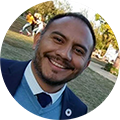
Cristian Becerra Monroy
Let's be part of the solution!



